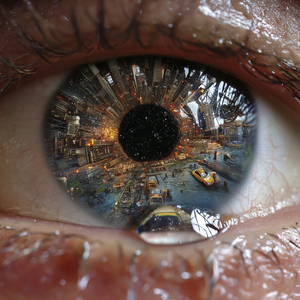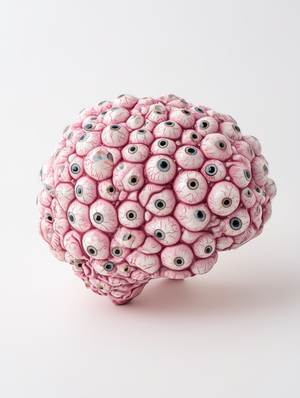The Dark Side of AI: Amplifying Human Flaws
Artificial intelligence is often lauded for its efficiency, precision, and capacity to solve problems on an unprecedented scale. Yet, like any powerful tool, it reflects the nature of its creators. AI doesn’t just augment our strengths—it also magnifies our weaknesses. If humanity is impulsive, biased, or distracted, AI systems built on our data and behavior will replicate and amplify these traits.
In the age of AI, we’re not just shaping machines. They’re shaping us—and sometimes for the worse.
A Mirror for Our Nature
AI systems are built on human data. They analyze patterns in our actions, thoughts, and preferences to make predictions and decisions. But these patterns are far from perfect. They’re riddled with biases, contradictions, and irrational tendencies. When AI systems learn from these imperfections, they can end up exaggerating them.
For example, algorithms trained on historical hiring data have been found to perpetuate gender and racial biases. If past hiring managers overlooked qualified candidates from certain backgrounds, the AI learns to do the same. Far from being objective, AI often becomes a magnifying glass for human prejudices.
Bias at Scale
One of the most troubling aspects of AI is its ability to amplify biases on a massive scale. Consider social media algorithms, which prioritize engagement to keep users scrolling. These algorithms often favor sensational or divisive content, reinforcing existing beliefs and creating echo chambers. Instead of broadening our perspectives, AI narrows them, making it harder to engage with diverse viewpoints.
Misinformation thrives in these environments. Studies show that fake news spreads faster and farther than accurate information, thanks in part to AI systems that prioritize attention-grabbing content. In the digital age, our biases aren’t just personal—they’re viral.
The Impulsivity Problem
AI also exploits and deepens our impulsivity. Platforms like Twitter and Instagram are designed for rapid interaction. They encourage quick reactions—likes, shares, and retweets—often without time for reflection. Over time, this erodes our capacity for critical thinking.
Impulse-driven engagement isn’t harmless. It can lead to emotional polarization, misinformed decisions, and even harm to relationships or reputations. What starts as a harmless dopamine hit from a notification can spiral into a cycle of reactive, unexamined behavior.
The Loss of Autonomy
As AI systems become better at predicting and influencing our choices, we risk losing a fundamental aspect of humanity: autonomy. Recommendation algorithms on platforms like YouTube or Netflix may seem convenient, but they subtly nudge us toward certain behaviors and preferences. Over time, these nudges can turn into invisible steering, guiding our decisions in ways we barely notice.
For example, Spotify doesn’t just recommend music; it shapes what we listen to. By feeding us more of what it thinks we like, it limits our exposure to new and diverse sounds. The same principle applies to news, entertainment, and even relationships on dating apps. Without realizing it, we’re becoming more predictable—and less free.
AI and the Darker Side of Humanity
While AI can enhance creativity and efficiency, it also exacerbates some of our worst traits. Consider:
• Narcissism: Social media algorithms reward self-promotion and superficial validation, fueling a culture of constant comparison.
• Laziness: Automation makes life easier but can erode problem-solving skills and creativity.
• Tribalism: By reinforcing in-group preferences, AI fosters division and reduces empathy for others.
These traits aren’t new, but AI gives them new power and visibility. The risk isn’t just that AI mirrors humanity—it’s that it amplifies our darker impulses to a degree we may not fully control.
Reclaiming Our Better Selves
The good news is that we’re not powerless in the face of AI. By understanding its influence, we can take steps to ensure that it serves us rather than shapes us. Here are some strategies:
• Develop Digital Literacy: Learn how algorithms work and recognize their biases. Awareness is the first step toward regaining control.
• Embrace Slow Thinking: Take time to reflect before reacting online. Deliberation is a powerful antidote to impulsivity.
• Seek Diversity: Actively explore perspectives, content, and ideas outside your comfort zone to counter algorithmic echo chambers.
Most importantly, we must remember that AI is a tool, not a master. Its impact depends on how we choose to use it.
Conclusion
AI holds a mirror to humanity, reflecting both our brilliance and our flaws. It has the potential to amplify our creativity, solve complex problems, and deepen our understanding of the world. But it also risks making us more impulsive, biased, and divided.
The future of AI isn’t just about building smarter machines—it’s about becoming better humans. By recognizing and addressing the darker tendencies that AI brings to the surface, we can ensure that this powerful technology serves as a force for progress rather than a catalyst for regression.
Speak to me 1:1
https://www.oceanheart.ai




Comments